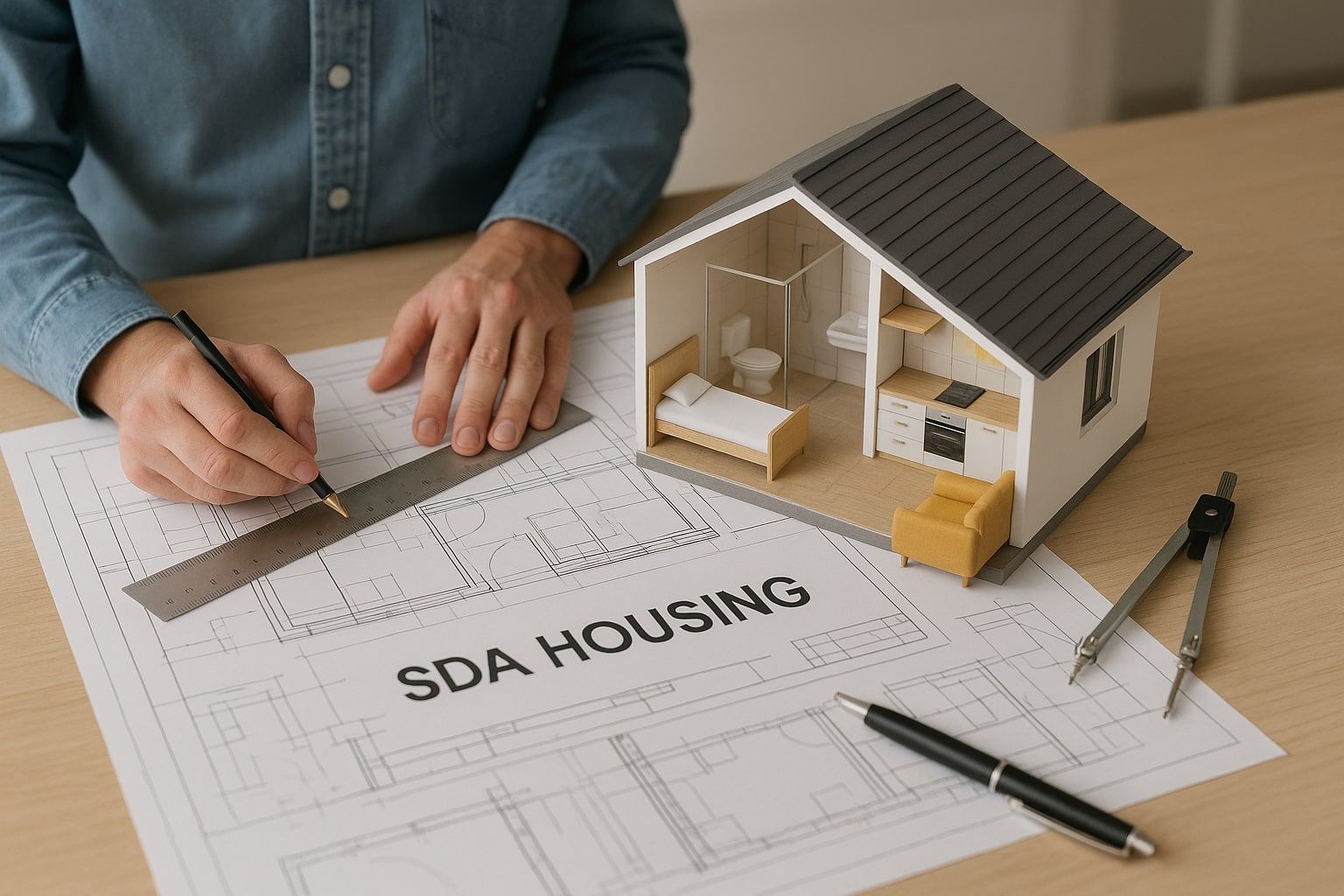NDIS Housing Modification & Renovations for Participants
NDIS Housing Modification
Home modifications could transform life for and greatly improve participants well-being and reduce dependence on carers. This affects many people – including those NDIS participants who might otherwise require SDA funding to support them in SDA accommodation. Home modifications include design and construction, as well as installing equipment or changes to non-structural parts of the building and installing fixtures or fittings. They help people to live as independently as possible or to live safely at home.
Home modifications are changes to the structure, layout or fittings of a participant’s home so they safely access it and move around comfortably in areas they frequently use.
Modifications must be tailored to individual needs and are quoted individually on an NDIS plan.
The NDIA will generally fund an NDIS home modification if the following conditions are met:
- Because of a participants disability, they cannot access and use some common rooms and spaces in the residence.
- The current home has significant impacts on day to day activities and care arrangements.
- A qualified Occupational Therapist has performed an assessment and recommended the use of equipment or other alternatives.
One study of people receiving care found home modifications reduced the overall hours of care they required by 42%. Their quality of life (measured as health-related quality of life) improved by 40%. By reducing care needs and costs, and increasing independence and well-being, home modifications lead to a multitude of government, community and personal benefits.
NDIS and Home Modifications
There are three broad categories of NDIS home modifications:
- Simple home adaptations that are low cost eg. grab rails or mounted shower chairs. Easily accessible to participants.
- Minor home modifications that are non-structural yet require experienced professional support to identify and deliver the right solution. The scope of work and associated costs are relatively low such as non-structural door widening.
- Complex Home Modifications (CHM) which involve structural changes that are more expensive, higher risk and where a greater level of certification is necessary. Several areas of a home may have work done and the results may have more of an impact on the participant’s life.
What do home modifications involve?
Home modifications specifically help participants live safely and independently in their own homes. The range of possible renovations is diverse.
Bathroom Modifications
Bathroom modifications may be done to provide ease of amenity use, as well as to maximise safety. These modifications may include installing hand-held showers, transfer chairs, towel bars, safety rails, shower benches, push-button door openers, and automated lighting.
Access and Mobility
Access ramps, chair lifts, elevators, and handrails may be installed to ease movement in and around the home. Slip-resistant coating may also be applied to floors to reduce the risks of slipping that may result in injuries.
Kitchen Modifications
Kitchen modifications may include anything from adjusting the counter-top heights, installing automated lighting, and installing accessible appliances.
Research measures how home modifications directly influence the amount of care needed to live, and continue living, at home. Hours of care for participants were compared before and after home modifications. The changes liberated them. Home modifications reduced or eliminated their need for help, restored their confidence in caring for themselves and reduced carer stress. As people’s confidence grew, they were happier to venture out into the broader community. Importantly, relationships improved.
The design of a house can be the predominant reason that forces a person into care or a SDA home. A bathroom, kitchen, entrance and exit, as well as how rooms connect, can all dictate whether a person lives independently.
We work with NDIS retro-fit builders who can assist with home modifications to help you live more independently. If you wish to modify your home to comply with NDIS requirements, please contact us at info@ndis.property.




